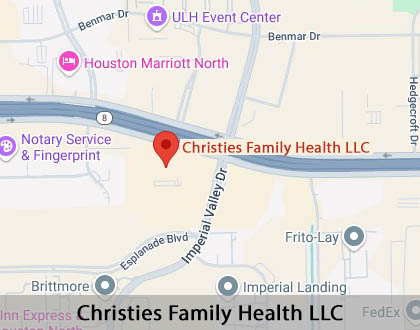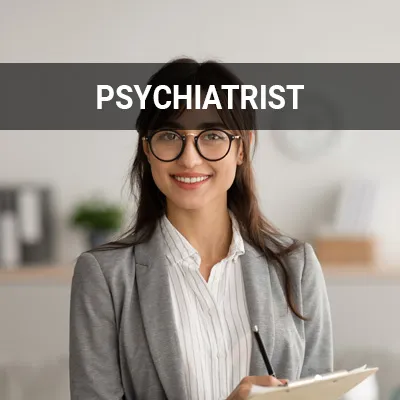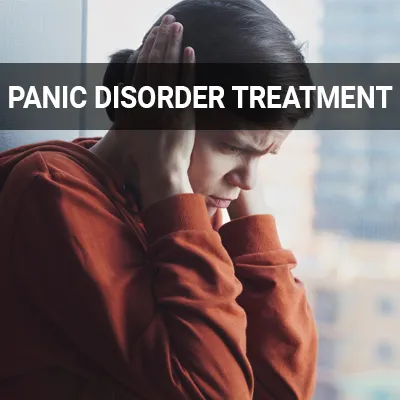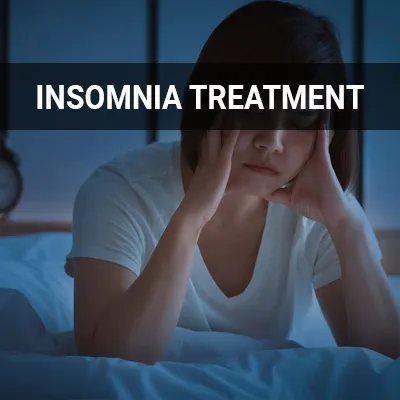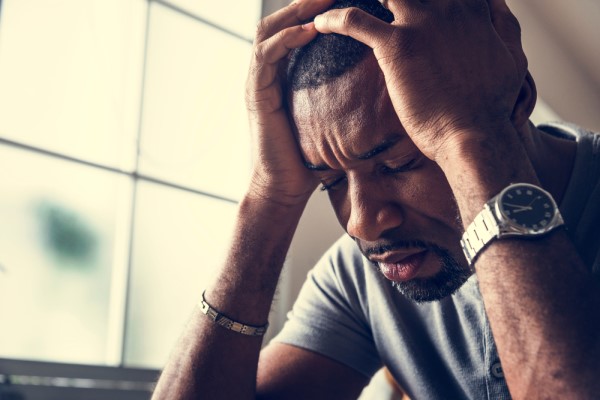Anxiety Treatment Houston, TX
People with overwhelming and persistent worry and fear about everyday situations can find relief with anxiety treatment. Anxiety disorders may not go away on their own. Receiving professional support and treatment can help people regain control of their lives before their anxiety worsens.
If you are experiencing anxiety that is difficult to control, regularly interfering with your life and relationships, do not hesitate to seek help. Our team at Christies Family Health LLC provides anxiety treatment in Houston and the surrounding area to help patients control and overcome their symptoms. Call us today at (832) 915-1818 to learn more about our services or schedule an appointment.
Understanding Anxiety
It is normal to experience the emotion of anxiety. However, regularly experiencing high anxiety levels can be a mental health disorder. People with anxiety disorders experience persistent and excessive fear, nervousness, apprehension, and worry. These disorders disrupt the way a person behaves and processes their emotions. They can range in severity from mild cases to severe ones that disrupt life and everyday interactions.
Anxiety disorders are one of the most common mental health illnesses in the country, with approximately 40 million people in the United States suffering from it. While anxiety disorders can affect people of any age or gender, women are more likely to be diagnosed with anxiety. There are several types of anxiety disorders, including:
- Generalized anxiety disorder (GAD): People with GAD experience persistent and exaggerated worrying and anxiety about everyday life events disproportionate to the severity of the situation. Concern usually centers around work, money, health, family, or even more minor matters.
- Obsessive-compulsive disorder (OCD): This disorder causes people to have repeated irrational thoughts and behaviors. People may have symptoms of obsessions or compulsions, or both at the same time.
- Panic disorder: People with panic disorder experience recurring panic attacks. This intense combination of psychological and physical distress can cause people to feel like they are experiencing a heart attack or other life-threatening illness.
- Post-traumatic stress disorder (PTSD): This mental health disorder occurs after a person experiences a traumatic event. People with this condition may experience nightmares or flashbacks of the trauma with intense and overwhelming emotional and physical reactions.
- Social anxiety disorder: This disorder causes people to experience significant anxiety and discomfort about being embarrassed, humiliated, rejected, or looked down on in a social setting. People with this disorder may try to avoid situations such as public speaking or meeting new people.
“People with anxiety disorders experience persistent and excessive fear, nervousness, apprehension, and worry.”
Benefits of Anxiety Treatment
Anxiety disorders can severely impair a person's relationships and functioning at work, school, and social activities. Fortunately, they are treatable. The right anxiety treatment can help people effectively reduce or eliminate their symptoms. While there are different types of anxiety disorders, most respond well to the two main treatments, psychotherapy and medications. Often, patients can benefit from a combination of the two.
We tailor treatment plans to each patient's unique needs. It may take some trial and error to determine which anxiety treatments are right for a client. Psychotherapy is also known as "talk therapy" and involves helping people change their way of thinking, behaving, and reacting so they feel less anxious. Patients can work with a therapist to learn healthy coping strategies and tools to deal with their anxiety. A psychiatrist can prescribe medications for anxiety.
Although they do not cure the disorder, medications such as antidepressants and sedatives can provide patients with significant relief. They work by balancing brain chemistry, preventing anxiety episodes, and stopping the most intense symptoms from occurring. Our team collaborates with patients to develop an individualized anxiety treatment plan that empowers them to overcome their symptoms and lead more manageable lives.
“The right anxiety treatment can help people effectively reduce or eliminate their symptoms.”
When to Seek Anxiety Treatment
Although some anxiety is healthy and normal, people with anxiety that results in distress or complications, such as secondary depression or alcohol abuse, can benefit from seeking treatment. Such severe anxiety can cause people to experience cognitive and physical symptoms, including an upset stomach, extreme sweating, rapid heart rate, and difficulty breathing. People with an anxiety problem requiring treatment may have trouble remembering, concentrating, and sleeping due to excessive stress.
Excessive avoidance behaviors and procrastination are also signs of an anxiety issue. People affected by this disorder may spend more time avoiding than taking action, needing outside treatment to overcome their disorder. Frequent panic attacks are also indicative of an anxiety disorder. If anxiety prevents a person from sleeping, working, interacting with others, or going about their daily activities, they should seek treatment as soon as possible.
“Although anxiety is a normal emotion to experience, people who experience disturbing or even disabling anxiety should seek treatment.”
Check out what others are saying about our mental wellness services on Yelp: Anxiety Treatment in Houston, TX
What to Expect During the Treatment Process
People receiving therapy will attend sessions to learn tools and strategies for coping with anxiety in a healthy way. They should expect their first anxiety treatment session to differ from their future ones. The initial appointment is a time for the patient and therapist to get to know each other and make a plan for the future. This is a crucial part of determining whether the therapeutic partnership is a good match.
Patients should expect to answer questions regarding their reason for seeking anxiety therapy, their symptoms, how they experience anxiety, and their background and history. Our personalized approach to anxiety treatment means that the number and frequency of appointments will vary for each patient and their unique needs. We will work with each patient and take their symptom severity and personal preferences into account when determining the optimal number of sessions.
“Patients should expect to answer questions regarding their reason for seeking anxiety therapy, their symptoms, how they experience anxiety, and their background and history.”
Questions Answered on This Page
Q. What are the different types of anxiety?
Q. What are the benefits of anxiety treatment?
Q. When should a person seek treatment for anxiety?
Q. What should people expect during anxiety treatment?
Q. What healthy coping mechanisms should people with anxiety incorporate in their lives?
People Also Ask
Q. How is panic disorder diagnosed?
Follow-up Care
Typically, anxiety treatment involves having sessions about once or twice a week. Every patient has different needs, so the length of treatment will vary. Sessions often continue for about three to four months but can continue for longer, depending on the severity of the disorder and type of treatment. There is not a quick fix for anxiety, and overcoming it will take time and commitment. Once patients learn how to manage their symptoms effectively on their own, they may discontinue treatment. Our team will show patients how to incorporate healthier coping mechanisms for their anxiety in their daily lives outside of their sessions.
Some healthy coping mechanisms that can help people manage their anxiety include adopting healthy lifestyle habits, reducing stress, and socializing. Positive lifestyle changes such as exercising, taking up a hobby, or even taking a brisk walk can help people refocus their thoughts away from their worries and relieve tension and anxiety. It is also beneficial for people with anxiety to engage with others instead of isolating themselves from others and social interactions. Loneliness and isolation can increase a person's vulnerability to anxiety disorders. We also recommend identifying stresses in life and looking for ways to reduce them.
“Some healthy coping mechanisms that can help people manage their anxiety include adopting healthy lifestyle habits, reducing stress, and socializing.”
Frequently Asked Questions
Q. What causes anxiety disorders?
A. The exact causes of anxiety disorders are not yet fully understood. Some possible causes include life experiences, underlying health issues, stress, personality, genetic factors, and drugs or alcohol. Traumatic experiences can trigger anxiety disorders in people who are at greater risk. Other mental health disorders, such as depression, and underlying health conditions, may also contribute to anxiety. Drug or alcohol abuse can cause anxiety and worsen it.
Q. What is stress, and how does it impact people?
A. Stress is a normal human reaction that can cause physical, emotional, or psychological strain. This emotional and physical response can make people feel overwhelmed, frustrated, angry, and nervous. The body experiences stress in response to real or imagined threats. During this automatic response, the nervous system responds by releasing stress hormones. While some stress is healthy, too much of it can result in poor health and anxiety.
Q. Can anxiety disorders be prevented?
A. Although it is impossible to prevent anxiety disorders, they typically respond positively to treatment from a mental health professional. Seeking professional treatment for anxiety is a great step to control or reduce anxiety symptoms. Some other coping strategies that may reduce stress and anxiety include exercising, meditation, breathing exercises, sufficient rest, and a healthy diet.
Q. What is a panic attack?
A. A panic attack is a sudden wave of intense fear or anxiety triggered by a perceived threat with no real or imminent danger. This episode of excessive fear can cause people to feel like they are losing control, having a heart attack, or even dying. While a panic attack is not a life-threatening experience, it can be extremely frightening and affect a person's quality of life. Luckily, treatments for panic attacks are usually very effective.
Q. What is the difference between generalized anxiety disorder (GAD) and general anxiety?
A. GAD and general anxiety are different. General anxiety or anxiety is a normal bodily response to stressful situations. In comparison, GAD is a disorder that causes excessive worry and tension for no apparent reason.
Change Is Possible – Call Us Today
Life isn't always easy. Are you struggling? Are you looking for a highly personalized and professional approach tailored to your individual needs? Instead of waiting around, call us today. You should know that there is hope for a better tomorrow.
Definitions
Call Us Today
Anxiety treatment is available at Christies Family Health LLC. Our team is here to help our patients overcome their anxiety and live normal and productive lives. Learn more about our services or schedule an appointment by calling us today at (832) 915-1818.
Helpful Related Links
- Agency for Healthcare Research and Quality. Agency for Healthcare Research and Quality. 2024
- American Psychiatric Association (APA). American Psychiatric Association (APA). 2024
- Psychology Today. Psychology Today. 2024
- The American Board of Professional Psychology. The American Board of Professional Psychology. 2024
- The American Journal of Psychology. The American Journal of Psychology. 2024
- The National Association of Behavioral Healthcare. The National Association of Behavioral Healthcare. 2024
About our business and website security
- Christies Family Health LLC was established in 2021.
- We accept the following payment methods: American Express, Check, Discover, MasterCard, and Visa
- We serve patients from the following counties: Harris County
- We serve patients from the following cities: Houston, Aldine, Jersey Village, Humble, and East Aldine
- Norton Safe Web. View Details
- Trend Micro Site Safety Center. View Details
Back to top of Anxiety Treatment

